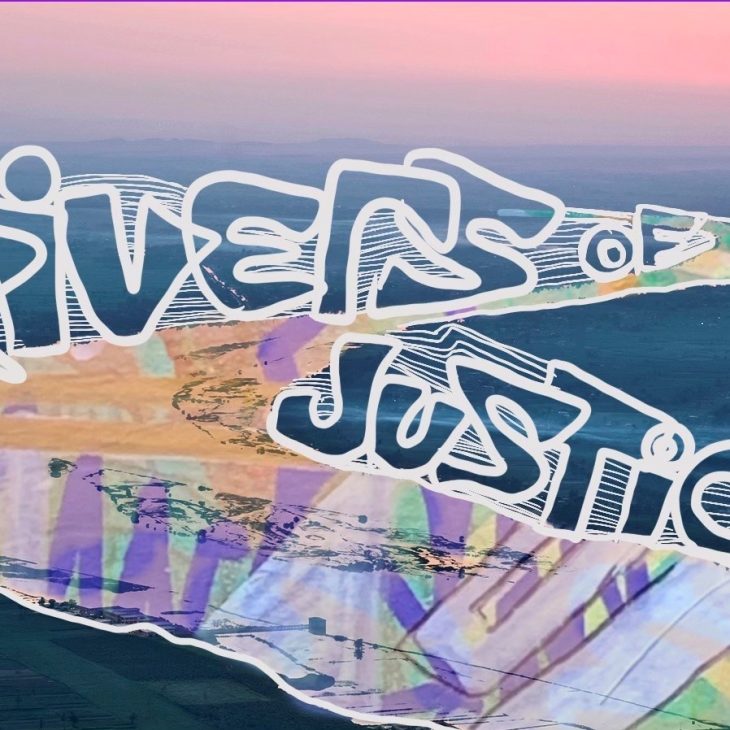Rivers of Justice
February 25, 2021

I was born by the river, in a little tent
Oh, and just like the river
I’ve been running ever since
‘Change Gonna Come’ recorded by Sam Cooke January 30th 1964
The river has been important since the dawn of civilization and has served as a commercial hub and lifeline for countless peoples over many millennia. Yet there has always seemed to be a justice that was out of reach for some. So, shall the struggle always continue and be found in the very soil that we inhabit? In his poem ‘Negro Speaks of Rivers’, Langston Hughes connected black people to a place and time even older than the earth. The oldest rivers become veins of blood (and life) running through mankind and we stand with him as we witness the unfolding of human history under the tutelage of black skin aglow with regality. Hughes penned this poem at 18, a couple of years after he had gotten assaulted after wandering into a Polish neighborhood his sophomore year in Chicago. Those words in me produce a sort of indescribable pride that emboldens ones resolve to continue to speak in a loud voice and fight for justice.
In April of 2017 me and a couple of pastors I worked with embarked on the journey of a lifetime to the opening of the Lynching Memorial in Montgomery Alabama. Sponsored by the Equal Justice Initiative, an organization committed to fighting for reforms in the justice system. I instructed my two counterparts to give me space to process. I knew I would be connecting to some painful experiences. As soon as I slowly approached the memorial that day it felt like I was stepping onto hallowed ground. Where the casualties of a sinful country had exacted penance from a suffering but strong people. There is a long winding walkway that serves as the entry into the teeth of the memorial. Where hundreds of steel beams rusted with the elements waited to hang overhead mimicking the very scale of the genocide lynching became. I didn’t make it too far until I needed to sit on a bench and weep for an hour. I began to imagine the fear that gripped many of my people as they moved through the same woods that surrounded the site. You see Alabama had perfected the human trafficking of Africans like no other place had. They constructed railroads to shuffle these brown bodies from places like Savannah to the state that became the epicenter in the South for the fight for civil rights in the 50s and 60s. After the tears stopped streaming down my cheeks and many had stopped to console me, I made my way to the center of the structure to a small mound that served as a place I would memorialize out loud those dead with that same poem by Langston Hughes that crescendos with the lines :
I bathed in the Euphrates when dawns were young.
I built my hut near the Congo and it lulled me to
sleep.
I looked upon the Nile and raised the pyramids
above it.
From Negro Speaks of Rivers by Langston Hughes, 1921
As I shrieked these words from a throat hoarse from crying, I felt as if some sort of chain-mail weight had been lifted off of my heart. In this work there is a connection with the lines from Sam Cooke’s haunting track ‘Change Gonna Come’ recorded the year after the march on Washington and Martin Luther King Jr’s “I have a Dream Speech” was delivered. It is a song many people in the US know the words to and is played still rather frequently. Mainly as an homage to all who have died and those who still hope we will be a healed people after all.
There is a stream I feel connects me to the struggles of the past like a never ending consciousness that bids one on into a dangerous future. Many justice seekers of old would speak with a confidence that communicated an inevitability to their struggle. While I aim to always honor black history with my black present I remain aware of the unrolling of black future. One where we hear the constant echoes of the voices of our ancestors and are moved to create life in freedom unseen by anyone. In these times the lament and the pain can be the most present. But it is the joy and beauty of this never-ending river of time that encourages us on. The struggle is not against its current but through it. I close with one of MLK’s favorite biblical passages about justice:
“I hate, I despise your religious festivals;
your assemblies are a stench to me.
Even though you bring me burnt offerings and grain offerings,
I will not accept them.
Though you bring choice fellowship offerings,
I will have no regard for them.
Away with the noise of your songs!
I will not listen to the music of your harps.
But let justice roll on like a river,
righteousness like a never-failing stream!
Amos 5:21-24 (MSG)
Share
Related Articles
Racial Equity
American Civic Life
Since Jan. 6 Attacks, Spiritual Leaders Unify to Combat Christian Nationalism
Racial Equity



